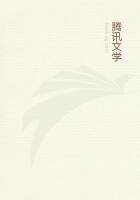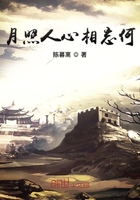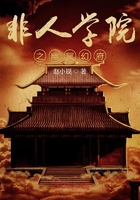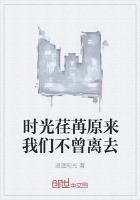Now I have no intention of setting down all the details of that dreadful journey through Zululand, even if I could recall them, which, for a reason to be stated, I cannot do. I remember that at first I thought of proceeding to Ulundi with some wild idea of throwing myself on the mercy of Cetewayo under pretence that I brought him a message from Natal. Within a couple of hours, however, from the top of a hill I saw ahead of me an impi and with it captured wagons, which was evidently heading for the king's kraal. So as I knew what kind of a greeting these warriors would give me, I bore away in another direction with the hope of reaching the border by a circuitous route. In this too I had no luck, since presently I caught sight of outposts stationed upon rocks, which doubtless belonged to another impi or regiment.
Indeed one soldier, thinking from my dress that I also was a Zulu, called to me for news from about half a mile away, in that peculiar carrying voice which Kaffirs can command. I shouted back something about victory and that the white men were wiped out, then put an end to the conversation by vanishing into a patch of dense bush.
It is a fact that after this I have only the dimmest recollection of what happened. I remember off-saddling at night on several occasions. I remember being very hungry because all the food was eaten and the dog, Lost, catching a bush buck fawn, some of which I partially cooked on a fire of dead wood, and devoured. Next I remember--I suppose this was a day or two later--riding at night in a thunderstorm and a particularly brilliant flash of lightning which revealed scenery that seemed to be familiar to me, after which came a shock and total unconsciousness.
At length my mind returned to me. It was reborn very slowly and with horrible convulsions, out of the womb of death and terror.
I saw blood flowing round me in rivers, I heard the cries of triumph and of agony. I saw myself standing, the sole survivor, on a grey field of death, and the utter loneliness of it ate into my soul, so that with all its strength it prayed that it might be numbered in this harvest. But oh! it was so strong, that soul which could not, would not die or fly away. So strong, that then, for the first time, I understood its immortality and that it could _never_ die. This everlasting thing still clung for a while to the body of its humiliation, the mass of clay and nerves and appetites which it was doomed to animate, and yet knew its own separateness and eternal individuality. Striving to be free of earth, still it seemed to walk the earth, a spirit and a shadow, aware of the hatefulness of that to which it was chained, as we might imagine some lovely butterfly to be that is fated by nature to suck its strength from carrion, and remains unable to soar away into the clean air of heaven.
Something touched my hand and I reflected dreamily that if I had been still alive, for in a way I believed that I was dead, I should have thought it was a dog's tongue. With a great effort I lifted my arm, opened my eyes and looked at the hand against the light, for there was light, to see it was so thin that this light shone through between the bones. Then I let it fall again, and lo! it rested on the head of a dog which went on licking it.
A dog! What dog? Now I remembered; one that I had found on the field of Isandhlwana. Then I must be still alive. The thought made me cry, for I could feel the tears run down my cheeks, not with joy but with sorrow. I did not wish to go on living. Life was too full of struggle and of bloodshed and bereavement and fear and all horrible things. I was prepared to exchange my part in it just for rest, for the blessing of deep, unending sleep in which no more dreams could come, no more cups of joy could be held to thirsting lips, only to be snatched away.
I heard something shuffling towards me at which the dog growled, then seemed to slink away as though it were afraid. I opened my eyes again, looked, and closed them once more in terror, for what I saw suggested that perhaps I was dead after all and had reached that hell which a certain class of earnest Christian promises to us as the reward of the failings that Nature and those who begat us have handed on to us as a birth doom. It was something unnatural, grey-headed, terrific--doubtless a devil come to torment me in the inquisition vaults of Hades. Yet I had known the like when I was alive. How had it been called? I remembered, "The-thing-that-never-should-have-been-born." Hark!
It was speaking in that full deep voice which was unlike to any other.
"Greeting, Macumazahn," it said. "I see that you have come back from among the dead with whom you have been dwelling for a moon and more. It is not wise of you, Macumazahn, yet I am glad who have matched my skill against Death and won, for now you will have much to tell me about his kingdom."
So it was Zikali--Zikali who had butchered my friends.
"Away from me, murderer!" I said faintly, "and let me die, or kill me as you did the others."
He laughed, but very softly, not in his usual terrific fashion, repeating the word "murderer" two or three times. Then with his great hand he lifted my head gently as a woman might, saying--"Look before you, Macumazahn."
I looked and saw that I was in some kind of a cave. Outside the sun was setting and against its brightness I perceived two figures, a white man and a white woman who were walking hand in hand and gazing into each other's eyes. They were Anscombe and Heda passing the mouth of the cave.
"Behold the murdered, O Macumazahn, dealer of hard words."
"It is only a trick," I murmured. "Kaatje saw them dead and buried."
"Yes, yes, I forgot. The fat fool-woman saw them dead and buried. Well, sometimes the dead come to life again and for good purpose, as you should know, Macumazahn, who followed the counsel of a certain Mameena and wandered here instead of rushing onto the Zulu spears."
I tried to think the thing out and could not, so only asked--"How did I come? What happened to me?"

